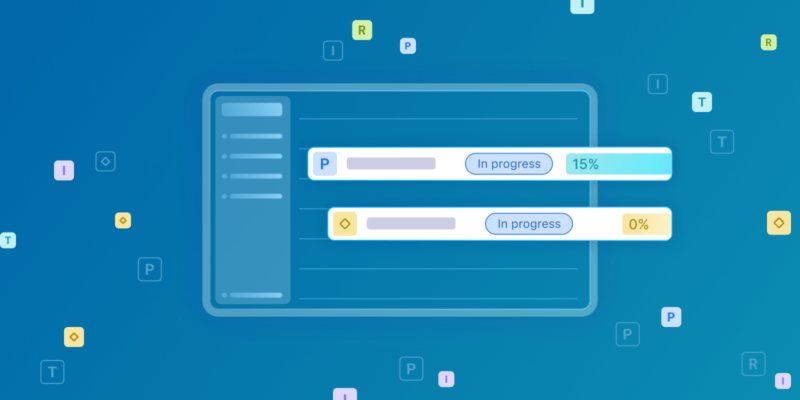“OK everybody, let’s have a project management meeting in 30 minutes and discuss everything there” This is the kind of line that makes most people roll their eyes in frustration. Nobody likes meetings. This fact alone already puts people in a negative state of mind, making sure (or at least raising the chances dramatically) that the project meeting will be inefficient. It’s predetermined.
11 Steps for Conducting Effective Project Management Meetings
Project management meetings are gatherings held within the context of project management to facilitate communication, coordination, and decision-making among project team members, stakeholders, and relevant participants. These meetings play a crucial role in ensuring the successful planning, execution, and completion of projects.
The project manager typically leads project meetings, and their productivity can be significantly enhanced by utilizing real-time data, a feature facilitated by project management software. Birdview, specifically designed for project management, enables the rapid generation of reports detailing a project’s resource allocation and financial status. These reports are easily shareable with the team, clients, and other stakeholders.
Executive Summary Report by Birdview

Here are key aspects of project management meetings:
Initiation and Planning: Project meetings are held at the initiation phase to discuss project goals, scope, and objectives. Planning meetings focus on developing a comprehensive project plan, including tasks, timelines, and resource allocation.
Regular Status Updates: Regular project status meetings keep all team members informed about progress, challenges, and upcoming milestones. These updates help in identifying potential issues and making necessary adjustments to keep the project on track.
Team Collaboration: Meetings provide a platform for team members to collaborate, share ideas, and discuss solutions. Collaboration fosters a sense of teamwork and ensures everyone is aligned with project goals.
Problem-Solving Sessions: Project management meetings often involve problem-solving sessions to address challenges or roadblocks. Team members can brainstorm and collectively find solutions to issues affecting project progress.
Decision-Making: Critical project decisions are made during these meetings, often with input from various stakeholders. Decisions may include changes in project scope, , or adjustments to timelines.
Risk Management Discussions: Risk management meetings focus on identifying potential risks, assessing their impact, and planning mitigation strategies. Proactive risk management helps in minimizing the impact of uncertainties on the project.
Budget and Resource Allocation: Meetings are conducted to discuss budgetary considerations and allocate resources efficiently. These discussions ensure that the project stays within budget constraints and optimizes resource usage.
Client or Stakeholder Updates: Project meetings may be held to update clients or stakeholders on project progress and address any concerns. Client feedback is often incorporated into the project management process.
Lessons Learned Sessions: After project phases or completion, meetings may focus on lessons learned. Team members discuss what worked well, what could be improved, and insights for future projects.
Change Management Discussions: Meetings are convened to discuss changes in project scope or requirements. Change management discussions ensure that all stakeholders are informed, and adjustments are made as needed.
Closure Meetings: At the end of a project, closure meetings summarize achievements, discuss challenges overcome and acknowledge team contributions. Post-project meetings also address documentation, client handovers, and any remaining tasks. The ability to effectively summarize text during these meetings ensures that critical information is communicated clearly and retained for future reference. Post-project meetings also address final documentation, client handovers, and any remaining tasks, providing a structured wrap-up for all involved.
Effective project management meetings are characterized by clear communication, collaboration, and a focus on achieving project objectives. They provide a structured framework for managing the complexities of projects and maintaining alignment among team members and stakeholders.
By incorporating these strategies, meeting organizers can create a conducive environment for collaboration, decision-making, and successful outcomes.
Meetings are both important and useful. Efficient and productive meetings can help accomplish lots of tasks much faster and get everybody on the same page (if needed). But to get to the point where meetings will accomplish anything apart from frustration, time waste, and fatigue, you need to get people into a positive state of mind before they start.
Don’t meet if you can avoid
Unless a meeting is an absolute necessity (it’s part of your methodology (scrum, lean, etc), there is important stuff to be discussed, etc) don’t organize them. There are plenty of ways to communicate your message: emails, newsletters, posters, sticky notes, etc. Spare your team the frustration, will you?
Besides, studies indicate that managers spend 70 percent of their time in meetings with an average of 8 meetings during a day. You spend more time doing meetings than you spend working. So if it can be avoided, it’ll be better for you, your team, and your project. It’s a triple win right there.
Make project meetings short and to the point
As much as it may seem to be time-efficient to discuss multiple matters during a meeting, it’s far from the truth. Each meeting should be scheduled for one specific, important matter. This will help make meetings shorter, more endurable, more productive, and time efficient and people just might start not to hate them anymore.
Start at a certain time and end at a certain time. Even if you didn’t make it to discuss everything in the time intended, you should still close the meeting, take notes, and come up with a better schedule next time. Make it an ongoing process and always try to make everything quick, smooth, and easy.
Make project management meetings fun!
People dislike meetings for various reasons, but mostly because they are boring as hell (well, most meetings are, but not yours!) What you should do is combat the boredom, with the best weapons possible fun, and humor. A few jokes during your speech or presentation, some good humor, and even anecdotes will do the trick.
Humor will also help lessen the tension (if there is any), refresh your audience, and make time run faster. That’s exactly why great comedians can keep their shows going for hours and still have their audience’s attention. You might not be the best comedian ever, but surely you can find a way to make the meetings more entertaining.
Encourage participation in the rally.
Encourage your team to participate as much as possible. Engagement is one of the best ways to make people pay attention. It’s like being in a class: you can sit at your desk and pretend you are listening all day, while your mind is thinking stuff like “I wonder how many chicken wings it would take to feed the entire planet” or some other stupid thing, just to kill time.
But if your professor gets you to stand up and answer a question, you have no other option than to participate and when you do, you will learn something. At the same time, the others will pay more attention, just in case they get asked a question.
Active participation combined with humor is your best shot to make the meetings more productive.
If everybody agrees on something, it’s probably bad
Lastly, if during a meeting everybody agrees on the proposal, then it’s probably a bad one. Either the suggestion is too simple and obvious, which means it shouldn’t be a meeting topic in the first place, or it’s so complex that everybody agrees to just get it off their minds.



